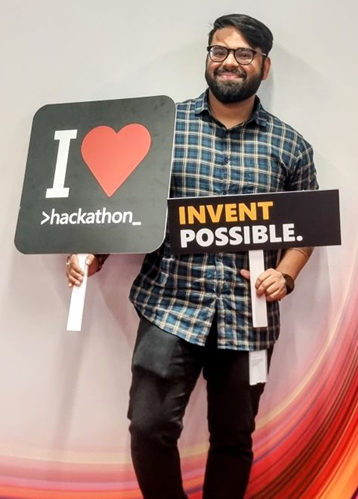Suryansh Rastogi : Building a Secure Cloud-A Conversation with a Cloud Security Architect

Suryansh Rastogi, a BITS Pilani, (Pilani,'17) graduate with a degree in B.E. Manufacturing is an experienced Cloud Security Architect. He is currently working for Microsoft and has vast experience, previously working for companies such as HSBC, Oracle, and Deloitte.
Q 1: How did BITS influence your career path? How did you transition to software engineering?
One thing I believe is that all the engineers, including myself have always had is this inherently i.e the ability to transform into anything as per the requirement. I would like to give that due credit to BITS Pilani because that is where I have seen engineers from all domains, they are working in varied domains because of the flexibility that BITS Pilani essentially provides in choosing your courses, and domains. This is what helped me. You need an opportunity to showcase your skills and talent. So, I worked on projects and that is where I got that opportunity. That is something that instilled the confidence in me that I can choose my journey.
Q 2: Did your ambition change over the years in BITS?
When you enter BITS, you don't know what or where you want to be. It is your curiosity and your interest that essentially will drive your path and not by what branch you're in. At the end of the day, the system is in a way that you can't decide your career just based on your branch. It's about curiosity. For me, this is something that excited me. When I graduated I was not aware of cyber security or cloud security. But, once you're working with large organizations, fortune 500 organizations, this becomes a very big aspect of your output. Then I came to know about the number of opportunities that there are in this field and how very few people are there in this domain. So that is where the right realization came to me.
Q 3: What exactly is cloud security?
For example, if you create an API that essentially takes in an image, does some modification to that image, and then sends it back to the customer. So where is all of that processing going to happen? Your system will not be able to handle 500,000 images in a few seconds, right? You will need some system that can run your API, irrespective of the volume. You are automating this job of setting things up, where they should run. These things are being handled in the cloud. Cloud does not just come with just one service, it comes with a database, other than that, you will also need a few other things. So how will you handle that? Cloud is the answer to that because it will readily have all of these features available.
Q 4: Is there a difference between cybersecurity and cloud security?
If you look at the word cybersecurity, cyber means computer and security, while cloud security is a subset of cybersecurity. Cybersecurity essentially talks about anything and everything that is related to the Internet, computers, and security. When you're talking about cloud security, you're talking about a more specific scenario.
Q 5: How did you transition from your time at BITS to these different companies?
I think I speak for all the alumni when I say that, you never really get the same kind of atmosphere that you have in college, where you're unanswerable. But outside you have to be answerable, specifically in security. It is always going to be very different and hectic. Eventually, I got introduced to Cloud security. This hobby transitioned to my career. I now know that I want to spend my career in security. That is the fundamental difference that you see when you come out of college versus when you spend a few years in the field.
Q 6: How do you manage the work-life balance?
I will give a little bit of an unpopular answer. When you start looking at your job as a work-life balance kind of thing, specifically, at a senior level, you will start having some problems specifically in an organization. If you're working in a critical position, and specifically, once you're above the five-year experience line, you cannot be like, my eight hours are done, I will log off. You need to complete your work before the time-line. I have had scenarios where I've worked for seven days every week. And there have been scenarios where work has been light and I have just done three hours a day or four hours.
Q 7: How was the academic environment back in your days? What was the campus life like?
Clubs and departments are a very critical part. I was part of NSS. We had a smaller team called Parachute. We helped people out in various ways and solved grassroots problems by being an engineer. This is what gives you the right amount of confidence to go out. You are given a problem statement, you start doing analysis, you start coming up with a solution, and then implement it. And that is why I think BITS is a big hub for entrepreneurs. Because that is what entrepreneurship requires. Once you can solve smaller problems, you get the confidence to face bigger problems.
You Might Also Like
- Discover More with BITSology!
- Goa to Goldman Sachs: Sahili Totale’s Road to Financial Excellence
- Dr. Mohit Sewak: Navigating the Frontiers of AI Research, Innovation, and Ethical Leadership
- Exploring Quantum Frontiers: A Journey from BITS Pilani to Advanced Research
- Talking Tech and Entrepreneurship with Kris Inapurapu


 An Institute of Eminence
An Institute of Eminence






